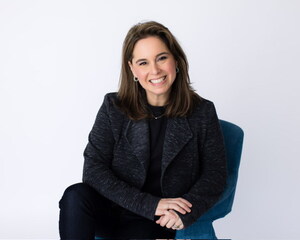CHICAGO, June 8, 2016 /PRNewswire-USNewswire/ -- Patients diagnosed with terminal conditions are more frequently turning to the tenth leading cause of death—suicide—to avoid loss of control and unwanted medical interventions in their dying days, according to osteopathic physicians who specialize in end-of-life care.
Initiating the end-of-life care process early, rather than near the very end, eases the pain for the patient, family and physician. Research shows, for example, only about one-third of Medicare beneficiaries (age 65 and older) died at home, despite data that most adults (90 percent) would prefer to receive end-of-life care in their home.i
"My patients tell me they have a fear of suffering, of being still in their body but not able to do anything about what happens to them. People want to have control when they're dying and they're afraid of what their loved ones may do to prolong their lives," said John Bertagnolli, DO, a board certified hospice and palliative care physician and assistant professor at Rowan University School of Osteopathic Medicine in New Jersey.
Legislating Advance Care Planning
The Compassionate Care Act, introduced in May by Senators Richard Blumenthal (D-CT) and Shelley Moore Capito (R-WV), aims to help Dr. Bertagnolli and other physicians work with patients to develop end-of-life care plans. The American Osteopathic Association supports the legislation, which includes funding to educate patients and test innovations in advance care planning.
Physicians are now encouraged to block out significant amounts of time to review and discuss advance directives through in-depth conversation with patients and their families. Medicare officially recognized the value of this time in January, when the agency designated a specific code for end-of-life discussions.
The first step to quality end-of-life care is getting the patient to share their vision of what constitutes a good death, Bertagnolli added, but in many cases physicians are uncomfortable addressing the issue and patient's families are offended by questions about death. Getting past that resistance is difficult, but necessary for patients' own mental and emotional wellbeing.
"Many people believe their parents or loved ones do not wish to discuss dying," said Dr. Bertagnolli. "In reality, they are just waiting to be asked. Osteopathic physicians are trained to identify and treat the parts causing pain, whether it's social, spiritual or from the body. At the end of life, you work with patients to control pain and give them the comfort they deserve as their life winds down," he explained.
How to Die On Your Own Terms
- Partner With Your Physician—When you know what you do and don't want to happen, your physician can explain which interventions might aid or interfere with your plans. Having the discussion with your physician while family members are present can make it easier to talk about an uncomfortable topic.
- Talk to Your Loved Ones—Families understandably don't want to let go and may want to try "one last thing" in hopes of preventing your death. Keep them from struggling with decisions by letting them know what you've decided. Integrating your physician into the conversation may help your family recognize and respect your sincerity about these decisions.
- Put it in Writing—Some states, including New Jersey, offer legally binding documents that serve as medical orders for those with limited life expectancy. These orders were developed to prevent patients from receiving medical treatments inconsistent with their wishes. These documents also ensure that you do receive medical treatments consistent with your wishes if they are needed.
- Manage the Details—Help your family take care of you by putting advanced directives in place, giving legally binding power of attorney to one or more people so they can follow through on your wishes about your health care and property. Also, you should finalize your will. Research all of the financial institutions that you do business with in case they require additional documents.
- Identify and Implement Goals—Identify the life experiences you would like to have before you die, from visiting a city to seeing a child graduate. Share those goals with family and friends and ask for their help realizing these final wishes.
"The barriers to high quality end-of-life care are the family and the physician," Bertagnolli explained. "Understanding the patient's wishes takes the burden off the family and the doctor. It makes the decision rational because everyone knows exactly what the patient would want, which gives the dying person peace and control."
About the American Osteopathic Association
The American Osteopathic Association (AOA) represents more than 123,000 osteopathic physicians (DOs) and osteopathic medical students; promotes public health; encourages scientific research; serves as the primary certifying body for DOs; is the accrediting agency for osteopathic medical schools; and has federal authority to accredit hospitals and other health care facilities. More information on DOs/osteopathic medicine can be found at www.osteopathic.org.
i Approaching Death: Improving Care at the End of Life, Institute of Medicine, 1997; Joan M. Teno et al., "Change in End-of-Life Care for Medicare Beneficiaries," JAMA 2013;309(5):470-77.
Logo - http://photos.prnewswire.com/prnh/20150716/237742LOGO
SOURCE American Osteopathic Association
Related Links
WANT YOUR COMPANY'S NEWS FEATURED ON PRNEWSWIRE.COM?
Newsrooms &
Influencers
Digital Media
Outlets
Journalists
Opted In






Share this article